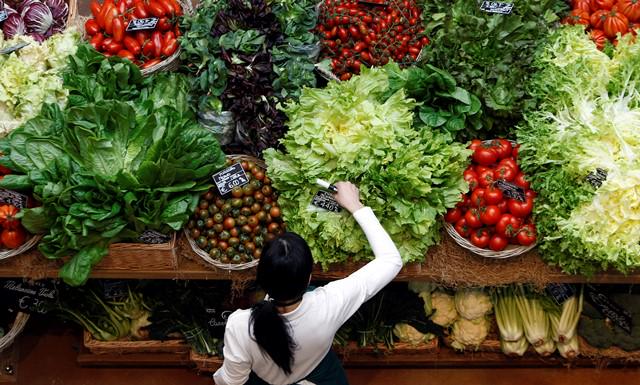
The EU market offers a vast number of food products, and producers often emphasize their competitive advantage by claiming the most favourable effects on health. As a part of the European research project CLYMBOL a research was made verifying the nutrition quality of prepacked food in different European countries, and the researchers paid a special attention to food marked as "healthy", and whether its nutrition composition was actually beneficial for health, the Nutrition Institute announced.
Approximately two thousand food products were included in the research, sold in Slovenia, Germany, Spain, Great Britain and the Netherlands. The Slovenian food products were analysed by the Nutrition Institute and the University of Ljubljana, as a part of the research project. Anita Kušar from the Nutrition Institute explained: "The research showed that also in Slovenia there is a lot of room for improvement in the field of food composition in Slovenia, but consumers have to change as well. If consumers start buying food of better nutritional composition, the food industry will react immediately and increase the offer. But we must get used to less sweet, less greasy and less salty food, and more often chose wholesome food."
"Healthy" food is just slightly better
Taking into account the contents of individual nutrients contained, they have established that food claimed as healthy in average does include less energy, sugar, saturated fats and sodium, and more nutritional fibres, but in most cases the differences were slight, which poses the question whether producers should be allowed to continue marking their food products as "healthy".
Mike Rayner from the Oxford University who emphasized that problem commented on the research: "If the purpose of claims on nutritional and health value on food were promotion of health of the inhabitants of Europe, the results of the research would convince us they were doing a poor job. Our research convinced us that the introduction of such measures, even not too strict, would significantly improve the nutritional composition of food products which are claimed to be healthier, but the question of the influence of the differences on public health remains unanswered."
Slovenia with the worst result
"Through our research we established that 43% of the all sampled food products fulfilled the conditions required for entering the list of food with more favourable nutritional composition, and 61% of those food products claimed by producers of having special nutritional or health characteristics. The manner in which the research was made does not allow us to report with certainty on statistically significant differences among countries, but it was interesting to learn that Slovenia was the country with the smallest number of food products with favourable nutritional composition - only 39% of all samples, compared to 53% in Great Britain. The results of evaluation of food products claimed as healthy by producer were similar: in Slovenia only 50% of such samples complied with the criteria for nutritionally beneficial food, compared to 81% in the Netherlands," explained Igor Pravst from the Nutrition Institute.
"There is a lot of work to be done by all who are working on promotion of varied and balanced diet. At the Nutrition Institute we are implementing programmes for health promotion, co-financed by the Ministry of Health, within which we are encouraging food producers to offer their consumers more food products with beneficial nutritional composition. For this purpose we are organizing a contest for the most innovative food products – recently our third invitation to participate has been announced, and the most innovative food products of 2017 will be presented to the public in January next year. The key parameter for evaluation is the nutritional composition of food products made in Slovenia," Kušar explained.

































































